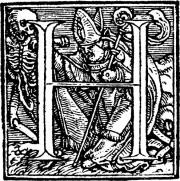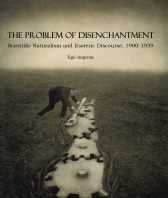The Journal of Religion in Europe has just published a review symposium on my book, The Problem of Disenchantment (2014). I’m excited to say that it contains critical reflections from three world-class scholars of religion, along with my own response. Hans Kippenberg, a well-known expert on Weberian approaches to the history of religion, evaluates some of the book’s claims in light of a broader reading of Weber’s oeuvre. Willem Drees, one of the leading figures in the “religion and science” field, takes a closer look at some of the points I made about the new natural theologies that emerged in the early twentieth century – specifically their relation to esotericism and “heterodoxy”. Finally, Ann Taves, a leading American scholar of religion working with (among other things) the cognitive science of religion and the notion of experience, continues a discussion that she and I have been having over the past few years regarding the perception, explanation and interpretation of “events” (for more on this, check out our forthcomming co-authored target article in Religion, Brain, & Behavior) . If you’ve got access, go ahead and read them!
While you are at it, you may also be interested in checking out my response, which I called “The Disenchantment of Problems: Musings on a Cognitive Turn in Intellectual History” (non-final version uploaded here, and added to my Academia page for easy access).












